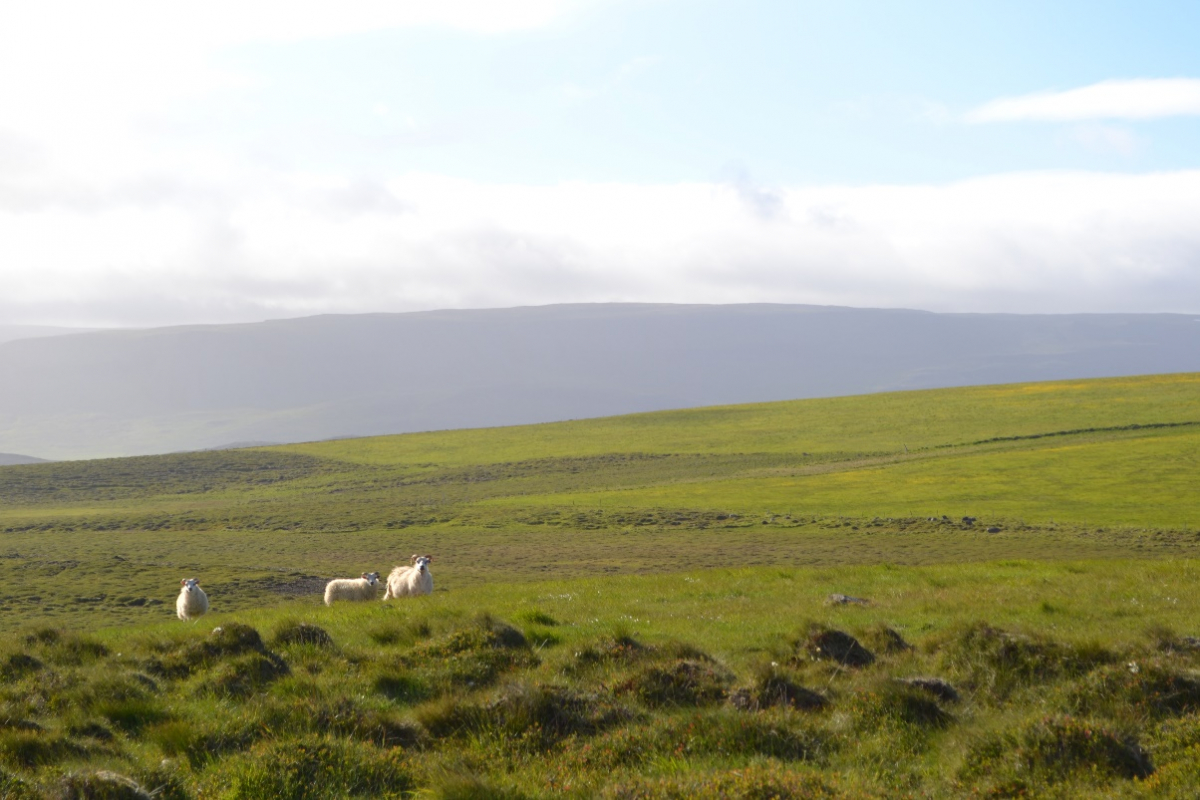Sheep grazing in Iceland affects vegetation, and there are indications that it also increases the extent of open patches. This is revealed in a study from a group of scientists who compiled all available information on the effects of sheep grazing on vegetation, soil properties and other organisms in the rangelands of Iceland. The researchers say that their study highlights the areas where more research is needed in order to ensure sustainable land use.
Grazing has been a hotly debated topic in Iceland for a long time – but to which extent is there scientific evidence to support the issue? Researchers from the University of Iceland, the Soil Conservation Service, the Agricultural University of Iceland and the United Nations University Land Restoration Training Programme tried to answer this and the results were recently published in the scientific journal Icelandic Agricultural Sciences. The article is based on analyses of sixteen studies; all conducted in Iceland, but the group examined extensive data in 374 documents from various sources in their research.
“Sheep grazing is clearly an important topic in Iceland,” says Bryndís Marteinsdóttir, current Project Manager of GroLind, a vegetation monitoring programme in Iceland. "It is interesting to see how little the discourse has changed since the 1960s. Some of the issues described in newspaper articles back then and the arguments used, still apply today. It is also astonishing how little scientific evidence we could find on the effect of grazing on Icelandic ecosystems."
“Of course, most of the articles were published in Icelandic,” says co-author Isabel Barrio, a research scientist at the University of Iceland, “what this means is that this literature is not available to a broader international scientific community. This is why we think our effort to compile all this information is very relevant, not only for Icelandic discussion but for the international scientific community”.
Their results show that, generally, grazing by sheep affects the structure of plant communities. “Our results, in a way, are not terribly surprising – we knew that sheep grazing affects vegetation, in Iceland and elsewhere in the world. What our study highlights are the areas where we need to know more. For example, we need more comparative studies within and outside volcanic zones; as the effects of grazing are likely to vary, but there are very few studies addressing this question specifically”, adds Isabel.
Furthermore, the researchers found that the extent of open patches in the vegetation was significantly higher in grazed areas. This is particularly problematic in some parts of Iceland because it can increase soil erosion. “We cannot really draw strong, general conclusions from the limited data we could include in our analyses, but we could still detect some consistent trends,” reports Ingibjörg Svala Jónsdóttir, Professor at the University of Iceland. “We need to understand better the impact of sheep grazing in different parts of Iceland that are subject to different environmental conditions. Some areas are more sensitive than others, so we have to develop specific guidelines adapted to the local conditions to inform sustainable grazing practices”.
Source: Marteinsdóttir, B., Barrio, I.C., Jonsdóttir, I.S. (2017) Assessing the ecological impacts of extensive sheep grazing in Iceland. Icelandic Agricultural Sciences 30:55-72




